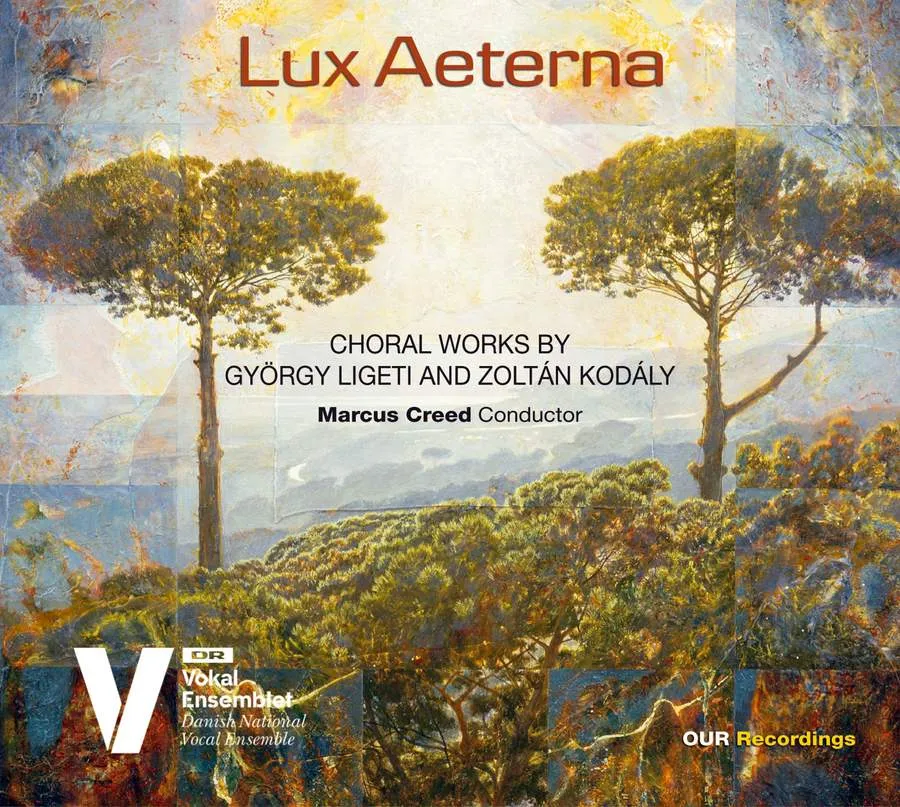
Lux Aeterna Kodály: Evening; Evening Song; Mátra Pictures; Ligeti: Lux Aeterna; Mátraszentimrei Dalok; Three Fantasies after Friedrich Hölderlin; Morning Danish National Vocal Ensemble/Marcus Creed OUR Recordings 6.220676 50:30 mins
Lux Aeterna, the Eternal Light that lends its name to this new release, is also the text of one of György Ligeti’s most extraordinary choral works. Composed in 1966, it has been likened to music from another planet, and its ethereal clusters of sound do indeed suggest light from space – or light going out into space. Its ending, with seven bars of silence representing the ultimate ‘light eternal’, is the only unchallenging passage in the 16-voice, micropolyphonic score, which receives a performance of great virtuosity and breathtaking subtlety from the Danish Radio Vocal Ensemble under Marcus Creed.
For anyone unfamiliar with this repertoire, the disc will indeed shine new light on what choirs can do, and it covers a range of Ligeti’s choral music, from the ‘Night’ (Ejszaka) and ‘Morning’ (Reggel) contrasts of the Zwei a cappella-Chöre – dating from 1955, the year before Russia’s invasion of Hungary made the composer a refugee – to the demanding Drei Phantasien nach Friedrich Hölderlin of 1982. Ligeti’s roots and the mentoring influence of Zoltán Kodály are revealed in the four earthy folksong arrangements comprising Mátraszentimrei Dalok.
These were collected in the same mountain region that Kodály celebrates in his a cappella masterpiece, Mátri képek (Mátra Pictures), which closes this disc. But it also features two other Kodály treasures: Este (Evening), which in 1904 became his first published choral work, and Esti Dal (Evening Song), a haunting prayer for peace that must have seemed as urgent in 1938 as it does now.
John Allison
More reviews
Musgrave: Phoenix Rising; Loch Ness; Poets in Love
Lyatoshynsky: Symphony No. 3; Grazhyna
Copland: Orchestral Works Vol 4
Beethoven: Symphony No. 9; Fidelio – ‘O welche Lust’; Brahms: Nänie
Antheil: Symphonies Nos 3 & 6; Spectre of the Rose Waltz; Archipelago; Hot-Time Dance